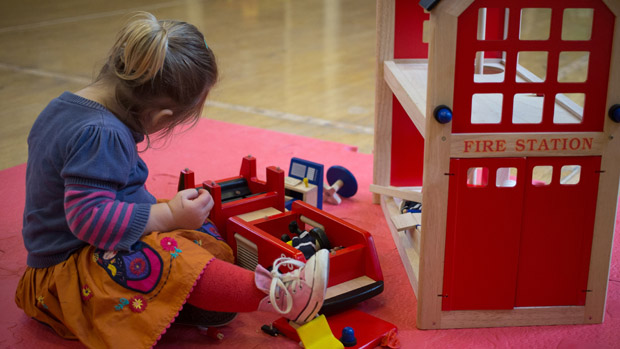'Three-parent babies': MPs to vote on divisive legislation
Britain could become first country in the world to permit 'three-parent babies' if legislation accepted

A free daily email with the biggest news stories of the day – and the best features from TheWeek.com
You are now subscribed
Your newsletter sign-up was successful
MPs will vote today on the divisive issue of "three-parent babies", in which a couple uses the DNA of a second woman to repair genetic faults in an unborn child.
The technique would help about 150 couples a year, where there is a risk of the mother passing down defective mitochondria – tiny compartments inside nearly every cell in the body – which can lead to brain damage, muscle wasting, heart failure and blindness.
A modified version of IVF combines the DNA of two parents with the healthy mitochondria of a second donor woman, producing a baby with 0.1 per cent of its DNA from the third parent.
The Week
Escape your echo chamber. Get the facts behind the news, plus analysis from multiple perspectives.

Sign up for The Week's Free Newsletters
From our morning news briefing to a weekly Good News Newsletter, get the best of The Week delivered directly to your inbox.
From our morning news briefing to a weekly Good News Newsletter, get the best of The Week delivered directly to your inbox.
If the amendments to the Human Fertilisation and Embryology Act 2008 go through, Britain will become the first country in the world to permit three-parent babies, the first of whom could be born as early as next year, says the BBC.
But the vote, which is due to take place this afternoon, has already sparked a fierce moral and medical debate, as the genetic change will be passed on through generations, with any unexpected issues affecting people who are not yet born.
The Catholic Church and the Church of England have raised ethical and medical concerns, urging politicians not to rush into the decision.
But a number of leading scientists, including five Nobel laureates, called on MPs to support the legislation. In a letter to The Times, they wrote: "We believe that those who know what it is like to care for, and sometimes to lose, an extremely sick child are the people best placed to decide whether this technology is right for them, with medical advice and within the strict regulatory framework proposed. They have been waiting for the science for long enough. They should not have to wait for the law to catch up."
A free daily email with the biggest news stories of the day – and the best features from TheWeek.com
Signatories included Sir Paul Nurse, president of the Royal Society; Sir John Gurdon, who won the 2012 Nobel Prize in physiology or medicine; and the Rt Rev Lord Harries, a former bishop of Oxford.
-
 6 of the world’s most accessible destinations
6 of the world’s most accessible destinationsThe Week Recommends Experience all of Berlin, Singapore and Sydney
-
 How the FCC’s ‘equal time’ rule works
How the FCC’s ‘equal time’ rule worksIn the Spotlight The law is at the heart of the Colbert-CBS conflict
-
 What is the endgame in the DHS shutdown?
What is the endgame in the DHS shutdown?Today’s Big Question Democrats want to rein in ICE’s immigration crackdown
-
 Home Office worker accused of spiking mistress’s drink with abortion drug
Home Office worker accused of spiking mistress’s drink with abortion drugSpeed Read Darren Burke had failed to convince his girlfriend to terminate pregnancy
-
 In hock to Moscow: exploring Germany’s woeful energy policy
In hock to Moscow: exploring Germany’s woeful energy policySpeed Read Don’t expect Berlin to wean itself off Russian gas any time soon
-
 Were Covid restrictions dropped too soon?
Were Covid restrictions dropped too soon?Speed Read ‘Living with Covid’ is already proving problematic – just look at the travel chaos this week
-
 Inclusive Britain: a new strategy for tackling racism in the UK
Inclusive Britain: a new strategy for tackling racism in the UKSpeed Read Government has revealed action plan setting out 74 steps that ministers will take
-
 Sandy Hook families vs. Remington: a small victory over the gunmakers
Sandy Hook families vs. Remington: a small victory over the gunmakersSpeed Read Last week the families settled a lawsuit for $73m against the manufacturer
-
 Farmers vs. walkers: the battle over ‘Britain’s green and pleasant land’
Farmers vs. walkers: the battle over ‘Britain’s green and pleasant land’Speed Read Updated Countryside Code tells farmers: ‘be nice, say hello, share the space’
-
 Motherhood: why are we putting it off?
Motherhood: why are we putting it off?Speed Read Stats show around 50% of women in England and Wales now don’t have children by 30
-
 Anti-Semitism in America: a case of double standards?
Anti-Semitism in America: a case of double standards?Speed Read Officials were strikingly reluctant to link Texas synagogue attack to anti-Semitism